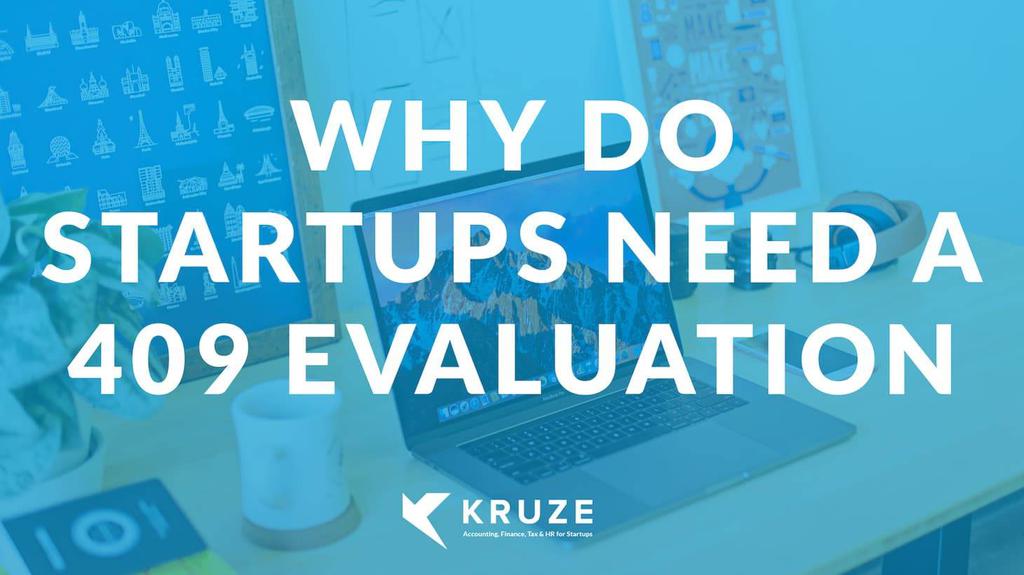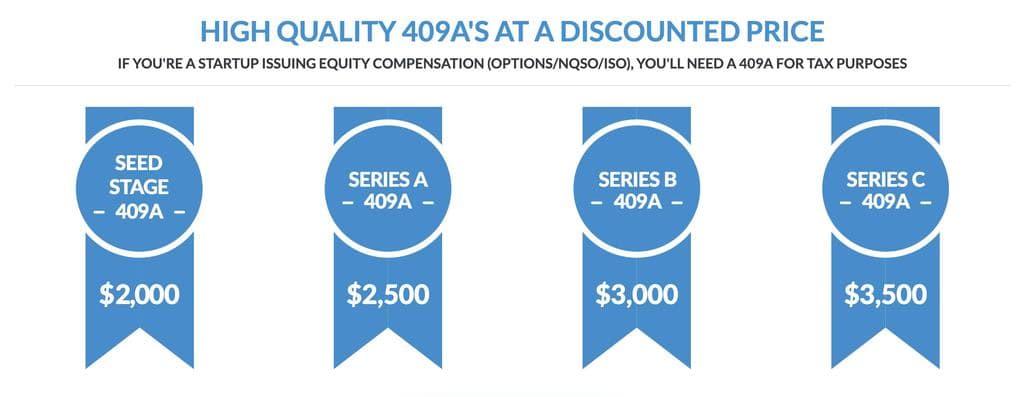
The IRS wants you to have a 409A valuation so they can make sure that your common stock options have the appropriate strike price.
Now, back in the day, in the good, old days, the board of directors used to just make up a number for the strike price for options, and oftentimes that was usually one penny because it’s the simplest thing to do, but the IRS realized that that usually wasn’t representative of the real value or price per share of those options, and so they started mandating 409A valuations.
The good news is, we do 409A valuations. We have a great page on our website that explains how much that costs starting at $2,000, all the documentation you need to actually do one, and we can do it in 10 days, so that’s fantastic, but you just know that what you’re really doing is buying audit protection.
You’re making sure that you have an independent, third-party value your company, value the common stock, and document that, document why the value is actually what it is. Typically, there are ways of doing it like the back-solve method or cost to recreate.
Sometimes people use a discounted cash flow or comparable company costs. Those are the ways people do evaluations to get to this price per share that the common stock should be issued at.
Again, what you’re really doing is making sure the IRS is happy and that if you ever get audited you’re protected because you used a valid third-party.
Why Can’t You Just Use Your Post-Money Valuation?
Many founders are tempted to just use their post-money valuation from their most recent VC financing. After all, you’ve got a share price and an investor was willing to pay that much for your company’s stock, shouldn’t that just work? Well, the fact is that there is a difference between a 409a valuation and a post-money valuation because startup investors purchase preferred equity with a number of very valuable rights and privileges. So the VC’s shares are worth a lot more than the common stock, therefore you’ve got to get a professional valuation to peg the price of those common shares and stock optins.
Why are 409A valuations declining?
Late-stage companies that aren’t publicly traded rely on 409A valuations to set the strike price for their stock options. Since tech stocks have corrected significantly in 2022, 409A valuations have been affected. That’s because 409A valuations look at the stock values of comparable publicly traded companies to set a value on startup companies that aren’t publicly traded. Then other factors, like type and amount of capital raised, projected cash flows, future business plans, and other considerations are used to set the 409A valuation.



